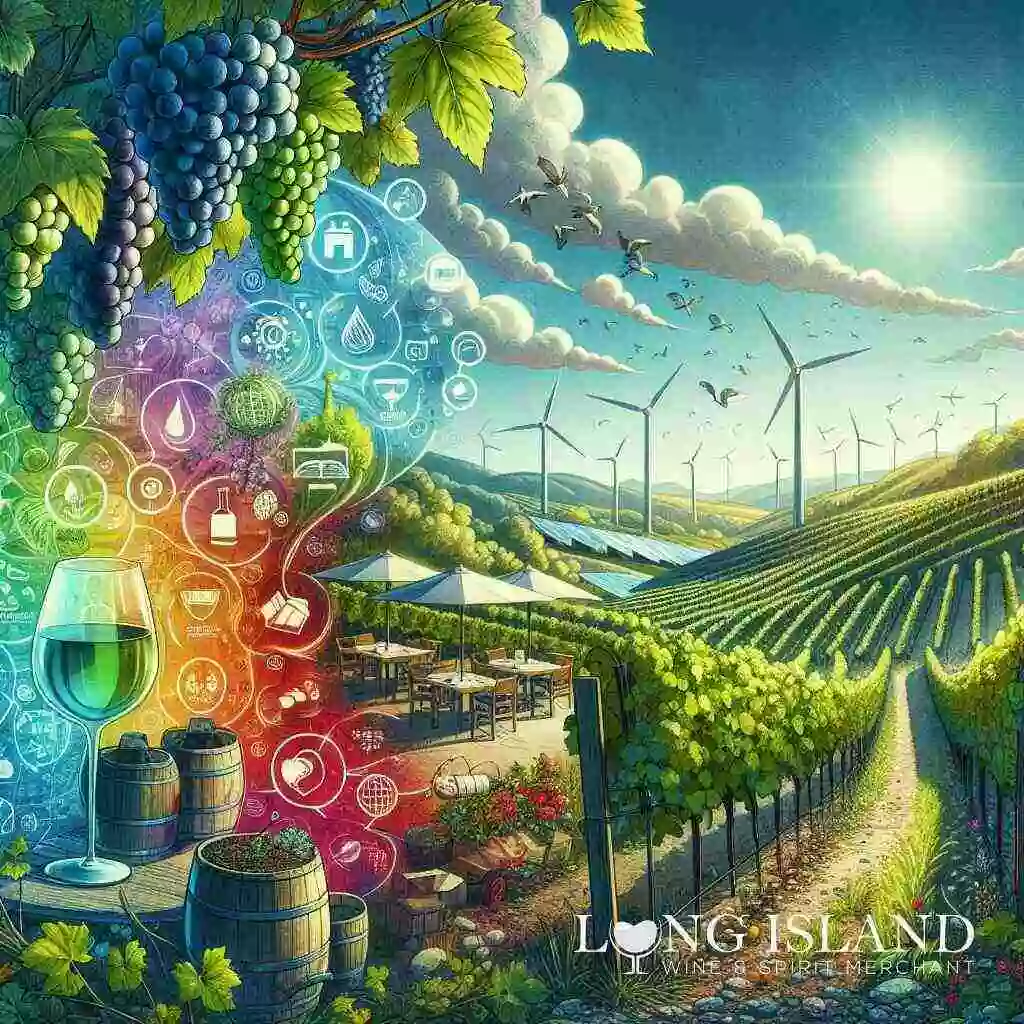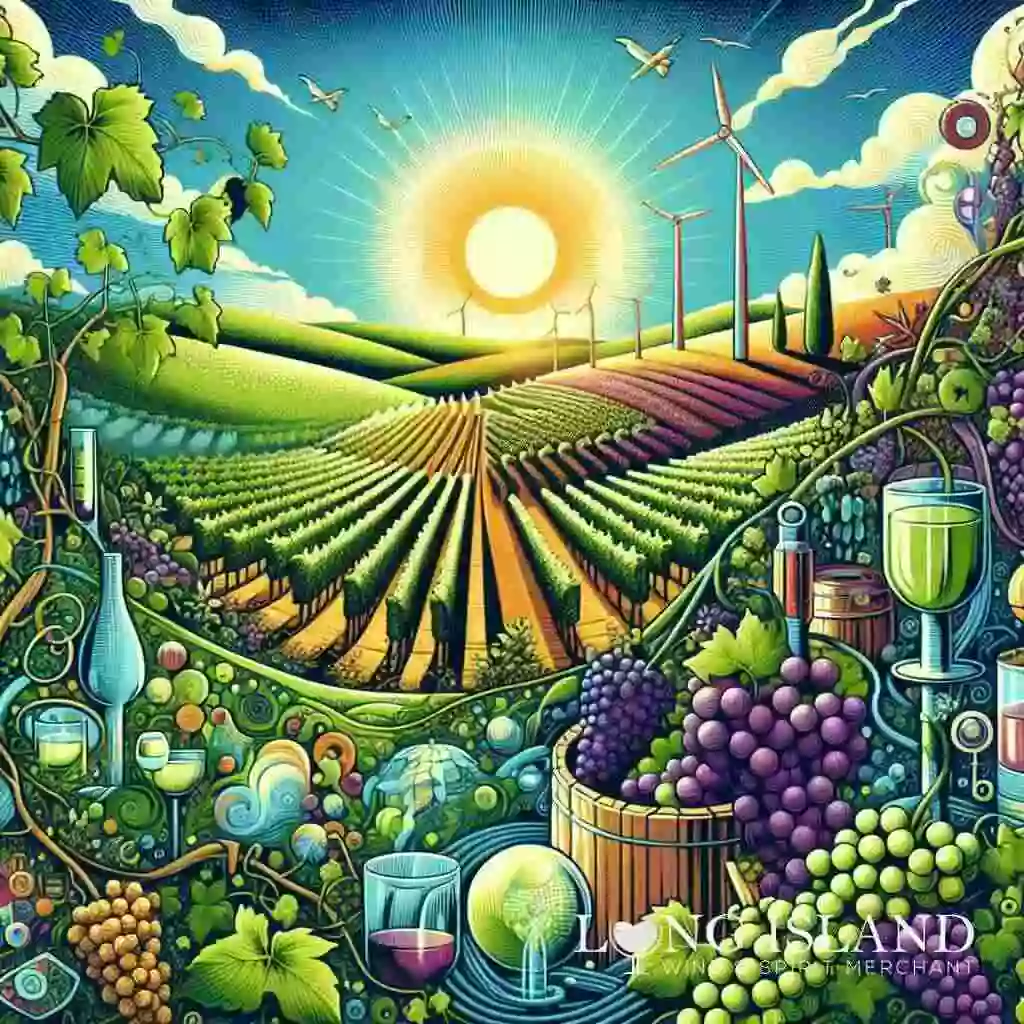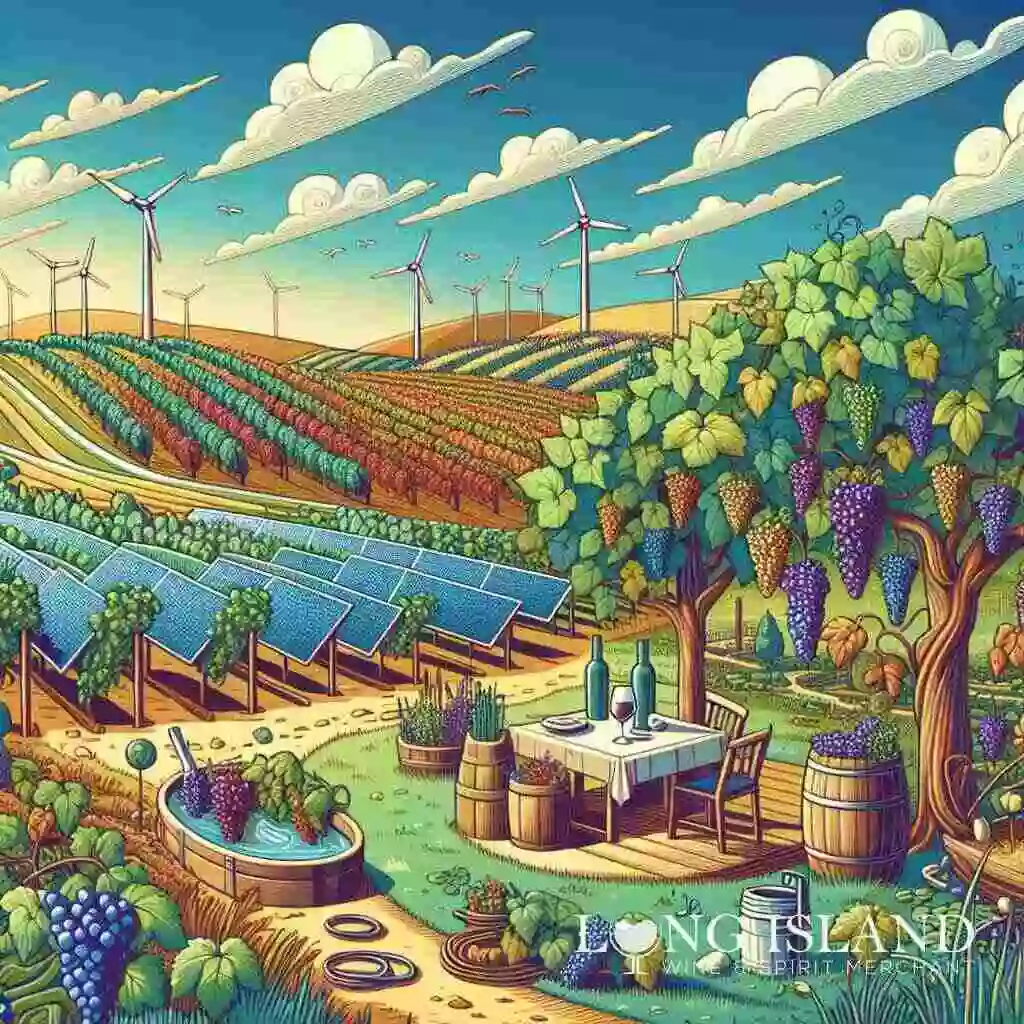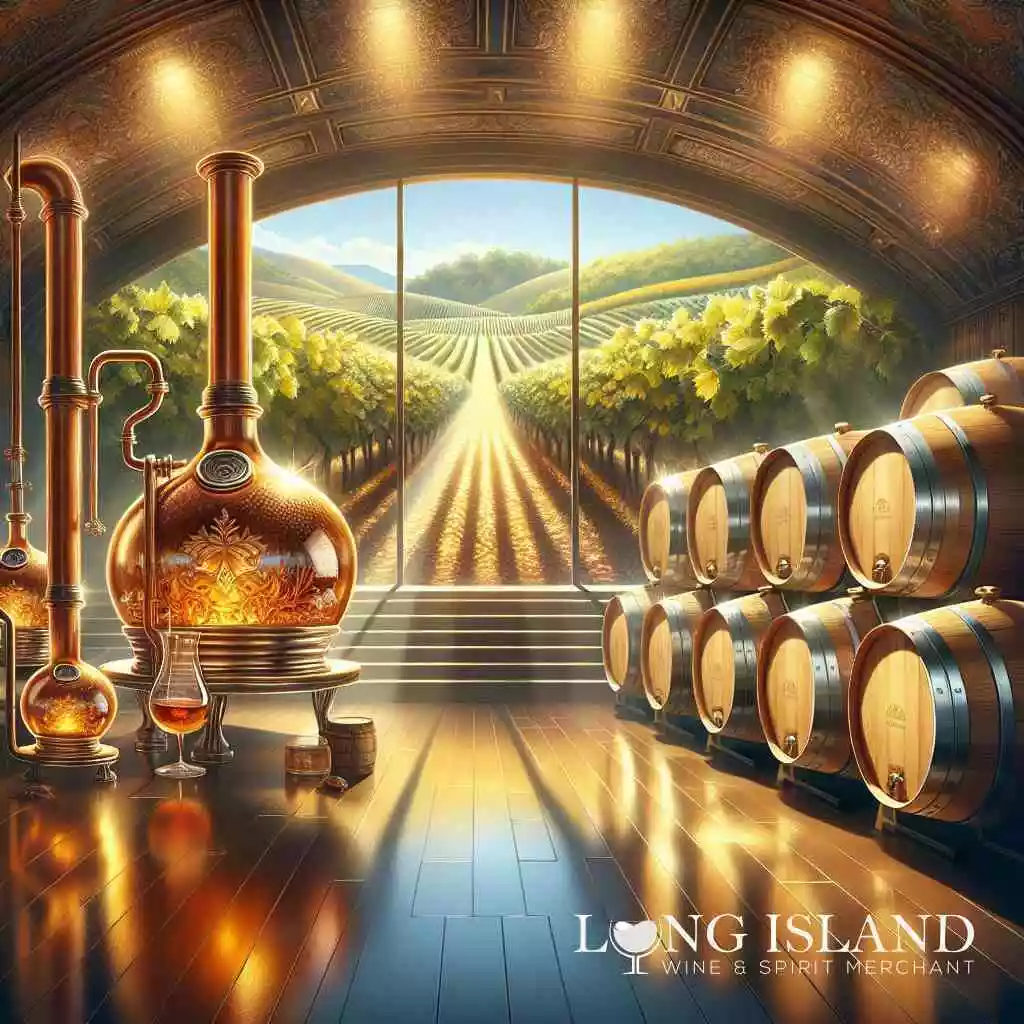
Top 5 Organic Wines for Sustainable Sipping
June 11, 2024
Introduction to Organic Wine
What Makes Wine Organic
Organic wine springs from the heart of eco-friendly viticulture, embracing practices that eschew synthetic chemicals in favor of natural substances and processes. At its core, wine is designated organic based on the absence of synthetic pesticides, herbicides, fungicides, and fertilizers in the grape-growing phase, aligning with stringent standards set by certifying bodies. This commitment extends to the cellar, where winemakers minimize the use of synthetic additives, ensuring that the wine in your glass is as natural as possible. In navigating the world of organic viticulture, the emphasis is on harnessing biodiversity, fostering soil health, and maintaining ecological balance, making each sip a testament to a cleaner, more sustainable approach to winemaking.
The Importance of Sustainable Wine Making
Sustainable wine-making goes beyond organic practices to include comprehensive stewardship of the entire ecosystem surrounding vineyard and winery operations. This holistic approach is centered on water conservation, energy efficiency, reducing carbon footprint, and enhancing social responsibility towards workers and communities. Sustainable viticulture ensures that vineyards not only produce high-quality grapes for exceptional wines but also contribute positively to the environment, preserving resources and biodiversity for future generations. By supporting sustainable vineyards, consumers play a part in a larger movement towards environmental conservation and social equity within the wine industry.
Benefits of Choosing Organic Wine
Opting for organic wine offers myriad benefits, both personal and planetary. For individuals, organic wines promise a purer tasting experience, often with fewer sulfites, which some believe contributes to a reduced risk of wine-related headaches. These wines reflect the true character of their terroir, offering unique, nuanced flavors that speak of their origins. On a global scale, choosing organic supports eco-friendly farming practices that protect the environment by avoiding toxic chemicals, fostering soil health, and encouraging biodiversity. By selecting organic wines, consumers contribute to a market that values health, sustainability, and the natural integrity of our planet’s ecosystems.
1 – Best Organic Red Wine
Criteria for Selecting the Best Organic Red Wine
When diving into the vast sea of organic red wines available, there are several key factors to consider ensuring you’re sipping on the cream of the crop. First and foremost, certification matters. A wine labeled as “organic” must meet rigorous standards set by certifying bodies, certifying that grapes are grown without synthetic pesticides, herbicides, or fertilizers. The winemaking process itself is also under scrutiny, minimal synthetic inputs and sulfites are allowed.
Beyond certification, the quality of organic red wine hinges on the terroir’s unique environmental conditions where the grapes are grown. Soil health plays a pivotal role in the character and taste of the wine, viticulturally sustainable vineyard techniques contribute to richer, more vibrant flavors. The winemaker’s philosophy and skill in marrying traditional and modern techniques can further elevate the wine’s quality, ensuring a balance between purity of flavor and complexity.
Top Organic Red Wine Recommendations
Navigating the world of organic red wines can be a delightful journey for the palate, especially when you know where to start. One standout is the Domaine Bousquet Malbec from Argentina, renowned for its deep berry flavors and smooth finish, embodying the essence of high-altitude vineyards in the Uco Valley. Another gem is the Benziger Family Winery Cabernet Sauvignon from Sonoma County, which impresses with its structured tannins, ripe fruit aromas, and commitment to biodynamic farming practices.
For those who relish the Old World’s charm, the Château Maris Syrah from the Minervois La Livinière AOC in France offers a robust experience with notes of dark fruit, spice, and an impressive minerality reflective of its storied terroir. These wines not only represent the pinnacle of organic viticulture but also showcase the diversity of flavors achievable when nature and nurture align in the vineyard and winery.
Ordering these select wines is made easy through venues like the Long Island Wine & Spirit Merchant, where you can find the best organic red wine recommendations and more, catering to your refined taste and desire for sustainable sipping.
Pairing Suggestions for Organic Red Wines
The right food pairing can elevate the organic red wine experience, highlighting its unique characteristics while complementing the flavors of the dish. For robust wines like Malbec or Cabernet Sauvignon, consider hearty meats such as beef or lamb, where the wine’s tannic structure and bold flavors can stand up to the richness of the food. For a wine with spicy notes, like a Syrah, pairing it with dishes that have a hint of spice can create a harmonious balance of grilled meats or dishes with a smoky edge.
Vegetarian options are plentiful, too, mushrooms, lentils, and eggplant can mimic the umami and texture of meat, offering satisfying pairings for those who prefer plant-based cuisine. Regardless of your dining preference, exploring the synergy between organic red wines and food is a delightful journey, revealing the nuanced interplay of flavors that makes each sip and bite a discovery.
2 – Top Organic White Wine
Qualities of Premier Organic White Wines
When exploring the enchanting world of organic white wines, certain qualities set the premier selections apart from the rest. Key among these is the organic certification which ensures the grapes are cultivated without harmful synthetic pesticides or fertilizers, allowing the true essence of the vineyard to shine through in every bottle. Viticultural practices play a pivotal role, emphasizing soil health and biodiversity to produce grapes that yield crisp, vibrant, and flavor-rich wines. The winemakers’ approach also matters significantly, methods that honor tradition while embracing innovation can lead to exceptional wines that are expressive of their terroir. These attributes contribute to a class of white wines that are not just enjoyable to drink but are also reflective of the winemaker’s commitment to sustainability and environmental stewardship.
Such exquisite wines can be found in top-rated organic white wine selections from reputable online stores, offering a gateway to explore these eco-conscious delights without leaving your home.
Recommended Organic White Wines
For aficionados seeking to indulge in the cream of the crop, certain bottles stand out in the vast sea of organic white wines available online and in stores. The Greco di Tufo from Campania, Italy, is a stellar example, showcasing a lively acidity paired with a minerality that speaks volumes of its volcanic terroir. Then there’s the biodynamic Stellar Organics Sauvignon Blanc from South Africa, which impresses with its fresh, zesty flavors and commitment to sustainable winemaking practices.
Another notable mention is the Domaine Zind-Humbrecht Riesling from Alsace, France. Produced by a pioneering family in biodynamic viticulture, this wine captivates with its exceptional balance, aromatic complexity, and refined elegance. For an American twist, the Frog’s Leap Sauvignon Blanc from Napa Valley offers a crisp, clean palate adorned with citrus and floral notes, exemplifying eco-friendly farming techniques in one of the world’s most renowned wine regions.
Organic White Wine Pairing Ideas
The versatility of organic white wines makes them a delightful companion to a variety of cuisines, enhancing both the flavors of the wine and the dish. For lighter-bodied wines like Sauvignon Blanc, pairing with fresh salads, goat cheese, or delicate fish dishes can accentuate the wine’s aromatic profile and lively acidity. Richer, full-bodied whites like an oaked Chardonnay marry well with heartier fare such as roast chicken, creamy pasta dishes, or even lobster, where the wine’s buttery texture and complexity can shine.
Vegetarian and vegan dishes also find harmonious matches in organic white wines-think grilled vegetables with a zesty Vermentino or a refreshing Pinot Grigio alongside a summer vegetable risotto. Experimenting with pairings can unearth delightful combinations, elevating the dining experience while celebrating the art of sustainable winemaking.
In embracing these recommendations, wine enthusiasts can explore the depths of organic white wine offerings, discovering bottles that not only excite the palate but also contribute to a healthier planet. Through thoughtful selection and pairing, the appreciation for these eco-conscious wines can deeply enrich one’s culinary endeavors and support the burgeoning movement toward sustainability in the wine industry.
3 – Finest Organic Rosé Selections
What Defines Quality in Organic Rosé
Quality in organic rosé is measured not just by its refreshing taste but also by the eco-conscious practices behind every bottle. The heart of quality lies in organic viticulture, a method that bans the use of synthetic chemicals on the vineyard, ensuring that every grape is nurtured in harmony with nature. Soil health, biodiversity, and minimal intervention during the winemaking process are pivotal, allowing the grapes to express their true character and terroir. A premier organic rosé selection captures the essence of its origin, offering a clean, vibrant, and nuanced drinking experience that’s as enjoyable on the palate as it is beneficial for the planet. These wines are certified by reputable organizations, ensuring they meet strict guidelines for organic production from vineyard to bottle.
Highlights of the Top Organic Rosé Wines
When exploring organic rosé wines, discerning drinkers are spoilt for choice with options that span the globe, embodying the best of eco-friendly viticulture. Among the must-try are rosés from Provence, France, where the delicate, pale pink wines define the category with their elegance, crisp acidity, and aromatic complexity. For a taste of Italy, the Abruzzo region offers Cerasuolo d’Abruzzo Rosé, characterized by its deeper hue and fuller body, with berry and cherry notes that delight the senses. And from the sun-bathed vineyards of California, organic rosé wines stand out for their fruit-forward profiles and vibrant freshness, perfect for sipping on a summer day.
Each of these selections is a testament to the winemakers’ dedication to organic practices, showcasing how sustainable farming techniques can yield exceptional wines. The premier organic rosé selections featured at Long Island Wine & Spirit Merchant offer discerning consumers an array of choices, catering to diverse tastes and preferences while advocating for a healthier planet.
Enjoying Organic Rosé: Tips and Pairings
Organic rosé wines are celebrated for their versatility, making them a fantastic choice for an array of culinary pairings and occasions. To fully appreciate their quality, serve chilled but not overly cold, around 50-55°F, to allow the wine’s aromas and flavors to express themselves fully. These wines are perfect for alfresco dining, accentuating the flavors of summer salads, grilled fish, and light pasta dishes with their crisp acidity and fresh fruit notes. They also make excellent companions to cheese platters, especially with soft and creamy varieties that contrast beautifully with the wine’s brightness.
For those looking to explore the world of organic rosé wines, consider starting with a tasting set from a specialized online retailer like Long Island Wine &S Spirit Merchant. This approach allows you to sample a range of styles and regions, opening your palate to the wide array of flavors that organic rosés have to offer. Whether enjoyed on their own, paired with a meal, or as part of a tasting experience, these wines promise a delightful and eco-friendly sipping experience that resonates with the growing desire for sustainable and mineral wines.
4 – Exceptional Biodynamic Wines
Understanding Biodynamic Wine Practices
Biodynamic wine practices go beyond the realm of organic viticulture, embedding deep ecological, ethical, and spiritual principles into the farming process. Rooted in the early 20th-century philosophies of Rudolf Steiner, these practices view the vineyard as a single, self-sustaining organism that thrives on the harmony of the earth, plants, and cosmic forces. Use of chemical pesticides and fertilizers is strictly prohibited, replaced by biodynamic preparations made from herbs, minerals, and manure to enrich the soil and combat pests. The biodynamic calendar, highlighting optimal days for planting, pruning, and harvesting based on lunar cycles, plays a crucial role in enhancing the vitality of the vineyard and the quality of the grapes. By adhering to biodynamic wine practices, winemakers commit to a level of stewardship that not only preserves but rejuvenates the ecosystem, producing wines of exceptional character and vibrancy that reflect the true essence of their terroir.
Leading Biodynamic Wines for the Eco-Conscious Consumer
For those looking to indulge in wines that embody the purest expression of eco-conscious viticulture, leading biodynamic wines offer a taste that is as rewarding as it is responsible. In the heart of France, the Domaine Leroy Burgundy exemplifies the pinnacle of biodynamic excellence, with wines renowned for their complexity, depth, and unparalleled finesse. Across the Atlantic, Benziger Family Winery in Sonoma, California, provides an array of biodynamic selections that captivate with their rich flavors and commitment to sustainable practices.
Another notable mention is the Huet Vouvray from Loire Valley, France, where wines are produced from Chenin Blanc grapes in vineyards that are a testament to biodynamic principles, yielding wines with extraordinary minerality and aging potential. These leading labels not only represent the zenith of biodynamic winemaking but also provide a conduit for consumers to support environmentally and socially responsible wineries. Exploring this organic wine online store offers a gateway to discover these and other exemplary biodynamic wines, each with a story of commitment to the health of our planet.
Pairing and Serving Suggestions for Biodynamic Wines
The nuanced flavors and enhanced vibrancy of biodynamic wines make them exceptionally versatile for pairing with a wide array of culinary delights. When serving biodynamic reds, consider dishes that mirror the wine’s complexity and depth, such as grass-fed beef, wild game, or mushroom risotto, allowing the earthy and robust characteristics of the wine to shine. For biodynamic whites, pair with seafood, poultry, or vegetable-based dishes that will complement the wine’s brightness and acidity.
Biodynamic sparkling wines are excellent for celebrations, pairing exquisitely with lighter fare or serving as a delightful aperitif. Cheese, with its rich flavors and varying textures, also makes a perfect companion to biodynamic wines, opt for organic, artisanal varieties to stay true to the spirit of biodynamic principles. The key to successful pairings lies in maintaining balance, letting neither the wine nor the food overpower the other, but rather allowing each to enhance the distinct characteristics of the other. For those seeking to explore the depth of biodynamic wines further, visiting an organic wines online store can provide not only access to a curated selection of wines but also insights into the best pairs to elevate your dining experience.
5 – Premier Natural Wines
Natural vs. Organic Wine: What’s the Difference
While both natural and organic wines emphasize minimal intervention and environmentally friendly practices, there are distinct differences between the two. Organic wines focus on the agricultural aspect, particularly how the grapes are grown. To be labeled organic, wines must adhere to specific regulations that prohibit the use of synthetic pesticides, herbicides, and fertilizers in the vineyard. The process from grape to bottle for organic wines may still involve certain additives, although these are heavily regulated.
On the other hand, natural wine takes the concept further by not only focusing on organic or biodynamically grown grapes but also by following a philosophy of minimal intervention in the winemaking process itself. This means no added sulfites, no fining or filtration, and allowing the wine to ferment with its native yeasts. The result is a wine thought to be a more authentic expression of its terroir, often with unique and sometimes variable characteristics from bottle to bottle. It’s this hands-off approach in both viticulture and vinification that sets natural wines apart, creating a product that’s as unaltered as possible from vineyard to glass.
Top Picks for Natural Wines on the Market
Selecting the best natural wines involves delving into offerings from winemakers around the globe who embody the principles of natural winemaking. At the natural wines marketplace, enthusiasts can discover a curated selection that represents the pinnacle of natural winemaking. From the vibrant, unfiltered reds of Italy’s Piedmont to the intriguing, cloudy whites of the Loire Valley in France, the spectrum of natural wines available is broad and fascinating.
For those exploring natural wines, a must-try is the Beaujolais Nouveau from France, known for its fruity vibrancy and freshness, showcasing the Gamay grape in its most natural state. Another standout is the natural sparkling Pet-Nat (Pétillant Naturel), offering a less conventional but incredibly rewarding bubble experience with its slightly wild yet refined effervescence. From California, the natural Orange Wines capture attention with their depth and complexity, produced by extended skin contact with white grapes, leading to their distinctive hue and intriguing flavor profile.
Best Food Pairings with Natural Wines
The inherently unique and diverse characteristics of natural wines make them versatile partners for a wide variety of foods. The key to successful pairings is to match the intensity and flavor profile of the wine with that of the dish. Light and fruity natural reds, like those from Beaujolais, pair beautifully with charcuterie, soft cheeses, and light pasta dishes. The bright acidity and earthiness often found in natural white wines make them ideal companions for fresh seafood, salads, and goat cheese.
For the more adventurous palates, natural Pet-Nats with their lively effervescence are excellent with spicy foods, cutting through the heat and refreshingly cleansing the palate. Orange wines, with their robust structure and tannins, can stand up to heartier fare, including grilled meats, rich stews, and a variety of aged cheeses. Embracing natural wines in culinary experiences encourages exploration and innovation on the plate and in the glass, inviting an open-minded approach to pair that mirrors the adventurous spirit of natural winemaking itself.
Sustainable Vineyard Practices Behind the Best Organic Wines
Eco-Friendly Farming Techniques
The cultivation of organic wines starts with eco-friendly farming techniques that prioritize the health of the environment, the vineyard workers, and ultimately, the consumers. These methods focus on the elimination of chemical pesticides and synthetic fertilizers, replacing them with natural alternatives that encourage a diverse ecosystem around the vineyard. Eco-friendly wine farming practices include the use of cover crops to enrich the soil, employing beneficial insects for pest control, and conserving water to ensure sustainability. By adopting such techniques, vineyards not only foster a healthier grapevine but also contribute to the biodiversity and resilience of the surrounding environment. As consumers become more conscious of their ecological footprint, the demand for wines produced under these principles continues to grow, reflecting a broader trend towards sustainable agriculture and responsible consumption.
The Role of Soil Health in Winemaking
At the heart of organic winemaking lies an unwavering attention to soil health. Sustainable vineyard practices understand that rich, vibrant soil leads to robust, flavorful grapes, which in turn, produce high-quality wines. Soil health is enhanced through natural composting methods, reduced tillage, and the avoidance of chemical inputs, allowing the soil’s microflora and fauna to thrive. This biodiversity underfoot is crucial for nutrient uptake in grapevines, making soil management a top priority for organic vintners. By maintaining healthy soil, wineries not only ensure the longevity of their vineyards but also enhance the expression of terroir in their wines, offering a more authentic and nuanced tasting experience that eloquently speaks of its origin.
Carbon-Neutral Wineries Leading the Way
As the wine industry marches towards a more sustainable future, carbon-neutral wineries are setting the benchmark for environmental stewardship. These pioneers in green winemaking are taking comprehensive steps to minimize their carbon footprint, embracing renewable energy sources, such as solar and wind power, and implementing energy-efficient technologies in their operations. The journey to carbon neutrality also involves reducing water usage, recycling waste, and ensuring all materials used are sustainable and biodegradable. By committing to these practices, carbon-neutral wineries not only mitigate their impact on the planet but also inspire others within the industry to follow suit. As we explore ways to enjoy our favorite wines, supporting these forward-thinking wineries becomes an integral part of fostering a healthier, more sustainable wine industry. Through initiatives like these, the stage is set for an eco-friendlier future in viticulture, proving that fine wine and environmental care can go hand in hand for the ultimate sustainable sipping.
Conclusion
The Future of Sustainable Sipping
The landscape of wine is transforming, led by a growing demand for sustainability both in the vineyard and the glass. As more consumers become acutely aware of their ecological footprint, the shift towards organic, biodynamic, and natural wines is not just a trend’s a movement towards a more responsible and holistic approach to viniculture. This evolution goes hand in hand with advancements in digital marketing for wine sellers, making it easier for eco-conscious consumers to discover and support brands that align with their values. The future of sustainable sipping is bright, promising wines that not only taste exceptional but also contribute positively to the health of our planet.
How to Continue Supporting Eco-Friendly Wine Practices
To further the cause of sustainable winemaking, consumers can take several meaningful steps. Firstly, educating oneself about the impact of wine production on the environment and the benefits of organic and biodynamic practices is key. Engaging with and supporting vineyards committed to eco-friendly techniques, whether through direct purchases or promoting them within your social circles, can have a profound effect. Advocacy for more stringent environmental regulations in the wine industry can also drive change at a higher level. Additionally, participating in events or clubs focused on sustainable wines offers a platform to stay informed and connected with like-minded individuals who are passionate about eco-conscious living.
Where to Order Organic Wine Online for Eco-Conscious Enjoyment
In today’s digital age, finding and procuring organic wines has never been easier, thanks to online platforms that cater specifically to eco-friendly and sustainable wines. For those looking to explore a curated selection of the best organic wines from vineyards around the globe, Order Alcohol Online is a comprehensive resource. Offering a vast array of organic wines online, including certified organic champagnes, reds, whites, and rosés, it provides a hassle-free way to enjoy top-tier wines that support sustainable viticulture. Their service areas cover all 50 states, ensuring that eco-conscious sipping is accessible no matter where you are in the U.S. With services like wine delivery, alcohol bottle gift boxes, and custom cases, Order Alcohol Online makes it easy for anyone to support green winemaking practices from the comfort of their home.
As we collectively navigate towards a more sustainable future, the role of eco-friendly wines in promoting environmental stewardship cannot be understated. By choosing to support vineyards and sellers who prioritize the planet, wine enthusiasts can enjoy a guilt-free glass of their favorite varietal while contributing to a greener, more sustainable world.
Frequently Asked Questions
Question: How does Order Alcohol Online ensure the quality of the organic wines listed in their “Top 5 Organic Wines for Sustainable Sipping” blog post?
Answer: At Order Alcohol Online, we take great pride in our selection process for organic wines. Each wine listed in our “Top 5 Organic Wines for Sustainable Sipping” is carefully vetted to ensure it meets stringent organic certification standards. We partner with vineyards that are committed to sustainable wine-making and environmentally friendly wine practices, focusing on those that utilize eco-friendly, biodynamic, or no-sulfite-added processes in their production. This commitment to quality and sustainability allows us to provide our customers with the best organic red wine, top organic white wine, and organic rosé selections that truly reflect the essence of eco-conscious sipping. With our rigorous selection process, customers can trust Order Alcohol Online for premium, certified organic wines that are as good for the planet as they are for the palate.
Question: Can I order vegan wine options through Order Alcohol Online, and how do they align with sustainable wine-making practices?
Answer: Yes, Order Alcohol Online offers a diverse selection of vegan wine options for those who are not only eco-conscious but also attentive to animal-friendly practices. These vegan wines are crafted without the use of any animal-derived fining agents, aligning seamlessly with sustainable wine-making practices. By emphasizing organic grape growing and partnering with vineyards that prioritize soil health and pesticide-free environments, these vegan wines contribute to the broader objective of environmentally friendly wine practices. When customers order organic wine online with us, they can specify their preference for vegan options, ensuring that their choices support both green winemaking and ethical considerations. This approach allows us to cater to a wide range of preferences while upholding our commitment to sustainability and eco-friendliness in the wine industry.
Question: What initiatives does Order Alcohol Online undertake to support carbon-neutral wineries?
Answer: Supporting carbon-neutral wineries is a key component of our mission at Order Alcohol Online. We actively seek out and partner with wineries that have demonstrated a commitment to reducing their carbon footprint through renewable energy, water conservation, sustainable vineyard practices, and other eco-friendly initiatives. By offering a selection of wines from these pioneering wineries, we aim to provide our customers with an opportunity to contribute positively to environmental conservation efforts while enjoying high-quality, sustainable wines. We believe that by promoting carbon-neutral wineries, we can help lead the wine industry toward a more sustainable future, highlighting the importance of green winemaking practices that benefit both our planet and our palates.
Question: Are there any benefits to choosing organic wines from Order Alcohol Online for customers concerned about allergies or sensitivities? Customers concerned about allergies or sensitivities may find organic wines from Order Alcohol Online particularly appealing.
Answer: Absolutely! Customers concerned about allergies or sensitivities may find organic wines from Order Alcohol Online particularly appealing. Many organic wines contain fewer sulfites, which are preservatives found in conventional wines that some people can be sensitive to. By focusing on organic, biodynamic, and natural wines, we offer options that are made with minimal intervention and without synthetic chemicals or additives. This can lead to a purer, more natural taste and potentially reduce the risk of reactions for those with sensitivities. Moreover, our selection process prioritizes wines that showcase the best of environmentally friendly wine practices, resulting in a cleaner, more authentic sipping experience that aligns with customers’ health preferences and concerns.
Question: How can customers learn more about organic vineyard practices behind the wines available at Order Alcohol Online?
Answer: Customers interested in learning more about the organic vineyard practices behind our wines can find a wealth of information directly on our website. We provide detailed descriptions for each wine, including insights into the vineyard’s farming practices, certification information, and the unique qualities that make each wine stand out. Additionally, our blog features articles and posts, such as the “Top 5 Organic Wines for Sustainable Sipping,” where we delve deeper into the world of eco-friendly, sustainable wine-making, and organic vineyard practices. For those seeking more personalized recommendations or wanting to explore our organic wine online store further, our customer service team is knowledgeable and ready to assist. By choosing to order organic wine online with us, customers not only enjoy exceptional wines but also gain insight into the important role that sustainable vineyard practices play in delivering quality products.




